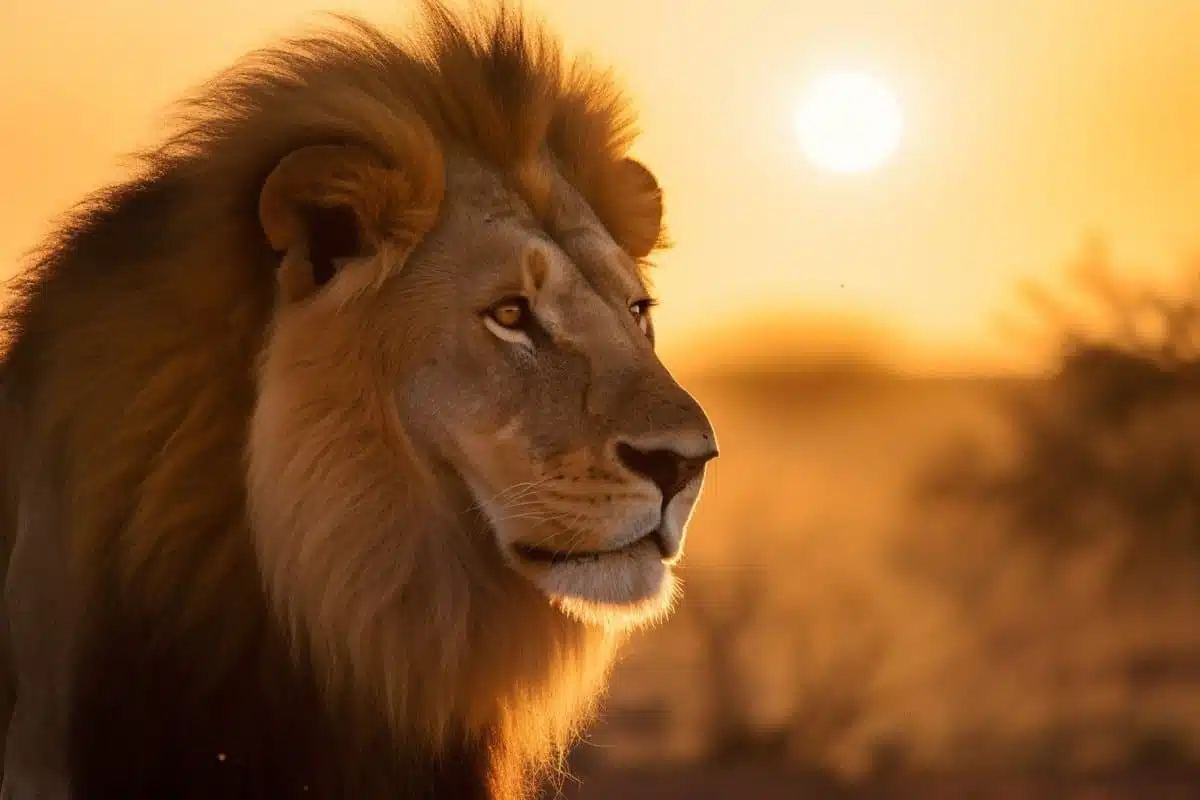Kevin Richardson, widely recognized as “The Lion Whisperer,” has carved a unique niche in wildlife conservation, particularly with his groundbreaking work with lions. Born on October 8, 1974, in Johannesburg, South Africa, Richardson’s early life did not follow a conventional path toward wildlife conservation. His academic background in physiology and anatomy provided a scientific foundation, yet it was his profound connection with animals that truly defined his career path.
Richardson’s educational journey, initially rooted in the life sciences, did not directly align with wildlife conservation. However, his intrinsic passion for understanding animal behavior and his hands-on approach to conservation have compensated for the lack of formal training in zoology or related fields. This self-taught expertise has enabled Richardson to develop innovative methods for interacting with and studying lions, challenging traditional conservation practices.
The inspiration behind Richardson’s dedication to lions and other predators is profoundly personal and philosophical. From a young age, he was keenly interested in the natural world, gravitating towards lions’ complex social dynamics and individual personalities. Richardson advocates for forming emotional bonds with these animals, believing such connections can lead to better conservation outcomes. This philosophy underpins his work, setting him apart from more conventional approaches in the field.
While Richardson’s professional life is well-documented, he maintains privacy regarding his family and personal life. His commitment to wildlife conservation is a family-supported endeavor. The sanctuary he established not only serves as a refuge for various predators but also symbolizes his family’s collective commitment to protecting and understanding wildlife.
Kevin Richardson’s unconventional journey into wildlife conservation has dramatically impacted the field, particularly in how humans perceive and interact with wild animals. His ability to foster close relationships with lions, based on mutual respect and understanding, has provided invaluable insights into their behavior and social structures. Moreover, Richardson’s work emphasizes the importance of empathy in conservation efforts, advocating for a coexistence that respects the needs and boundaries of humans and wildlife.
Through his advocacy, educational outreach, and establishing his sanctuary, he challenges conventional norms and inspires a broader understanding of the potential for human-animal relationships. His story is a compelling reminder of the impact that individual passion, coupled with a deep respect for the natural world, can have on conservation and our understanding of the animal kingdom.
The Kevin Richardson Wildlife Sanctuary
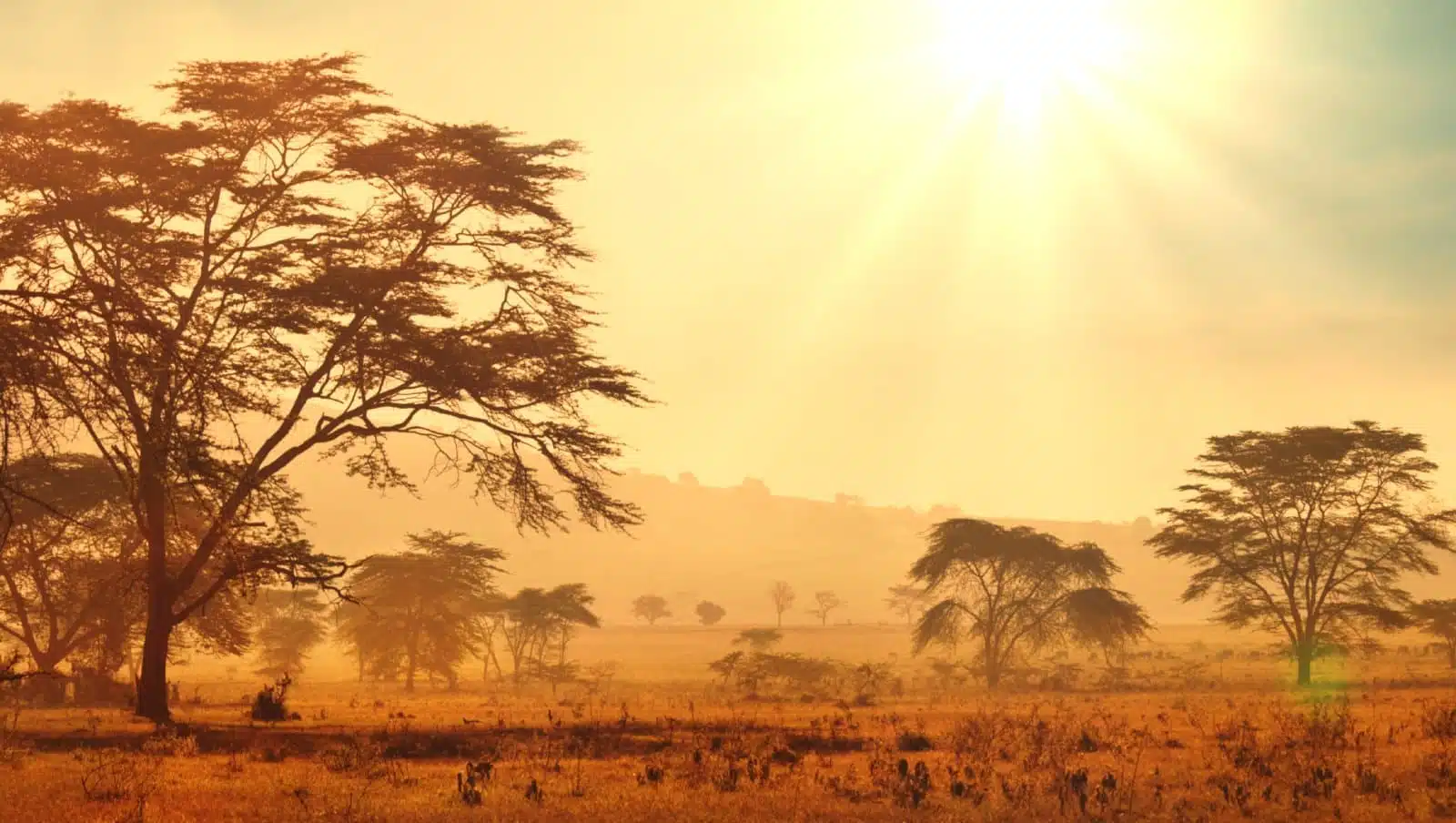
Image Credit: Shutterstock / Galyna Andrushko
The Kevin Richardson Wildlife Sanctuary, situated in the sprawling landscapes of South Africa, stands as a beacon of hope and innovation in the field of large carnivore conservation. This sanctuary provides a safe haven for lions, hyenas, and leopards rescued from dire circumstances and functions as a vital research center dedicated to understanding predator behavior and developing effective conservation strategies.
Unlike conventional wildlife reserves, Richardson’s sanctuary is distinguished by its founder’s unique, hands-on animal care and management approach. Kevin Richardson, often seen walking alongside lions or within the embrace of a leopard, has shattered traditional notions of human-animal interactions. This profound bond between Richardson and the sanctuary’s inhabitants facilitates unparalleled research opportunities and is a powerful tool for public education and awareness.
The sanctuary’s efforts extend beyond the immediate welfare of its residents, focusing on broader conservation goals such as habitat restoration, anti-poaching initiatives, and legislative advocacy to protect predators in the wild. Through its commitment to these creatures and the ecosystem at large, the Kevin Richardson Wildlife Sanctuary embodies a forward-thinking approach to conservation that emphasizes respect, understanding, and coexistence.
Lion Conservation Efforts
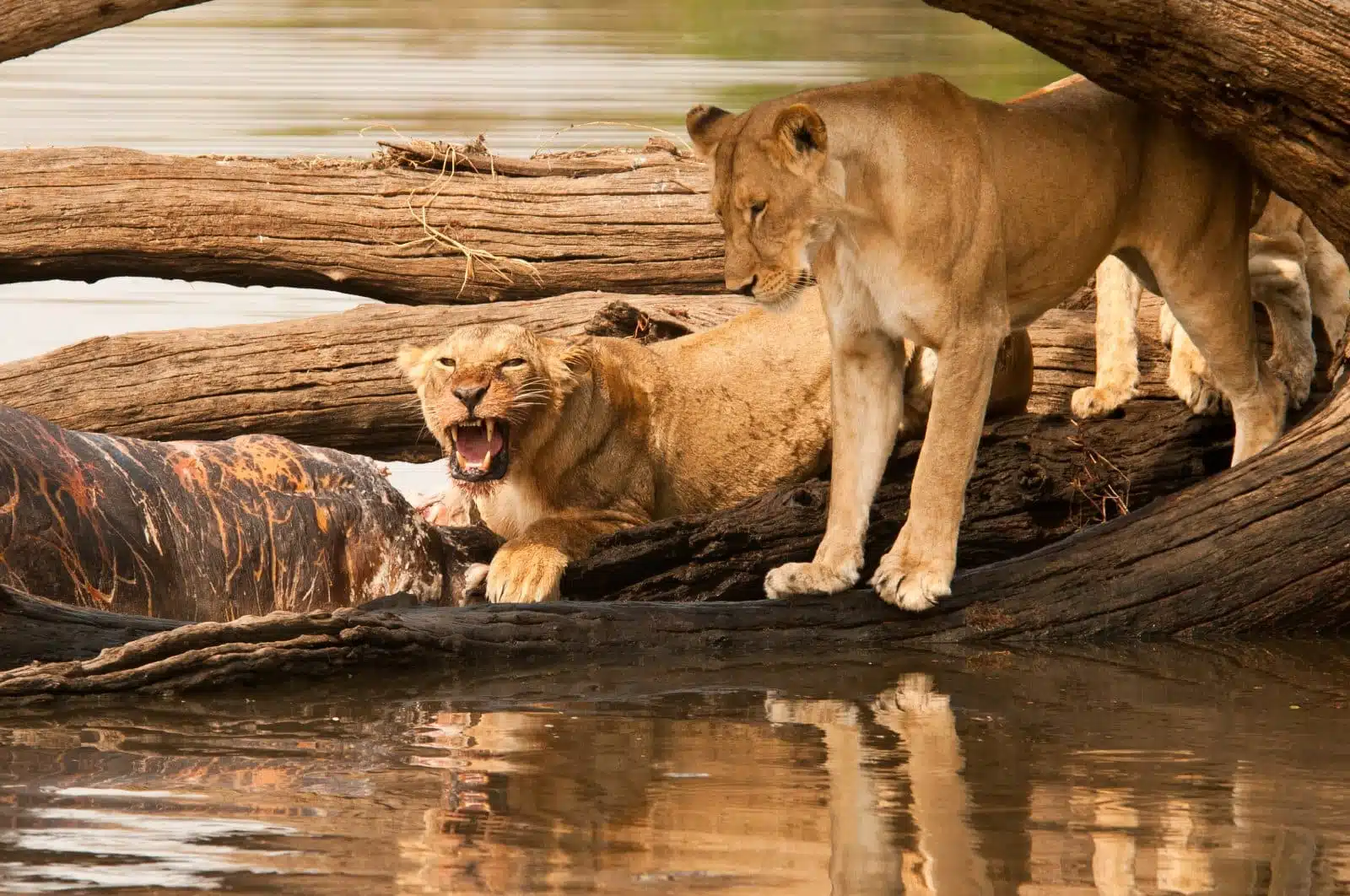
Image Credit: Shutterstock / Andrew Molinaro
Central to Kevin Richardson’s mission is preserving Africa’s lion populations, which face various existential threats. Habitat loss, human-wildlife conflict, and illegal poaching have all contributed to a precipitous decline in lion numbers across the continent. Richardson’s conservation efforts are multifaceted, addressing the immediate needs of lions within the sanctuary and the broader challenges facing wild populations.
Through meticulous research and daily interactions, Richardson has gained insights into lion social structures and behaviors, information that is vital for developing effective conservation strategies. His work in mitigating human-lion conflict, a significant factor in the decline of lion populations, involves community outreach and education, promoting strategies for coexistence. Additionally, Richardson actively campaigns against practices detrimental to lion conservation, such as canned hunting and the bone trade.
By raising public awareness and advocating for policy change, Richardson’s lion conservation efforts aim not only to safeguard the future of these majestic animals but also to preserve the rich biodiversity of Africa’s ecosystems for generations to come.
Educational Outreach
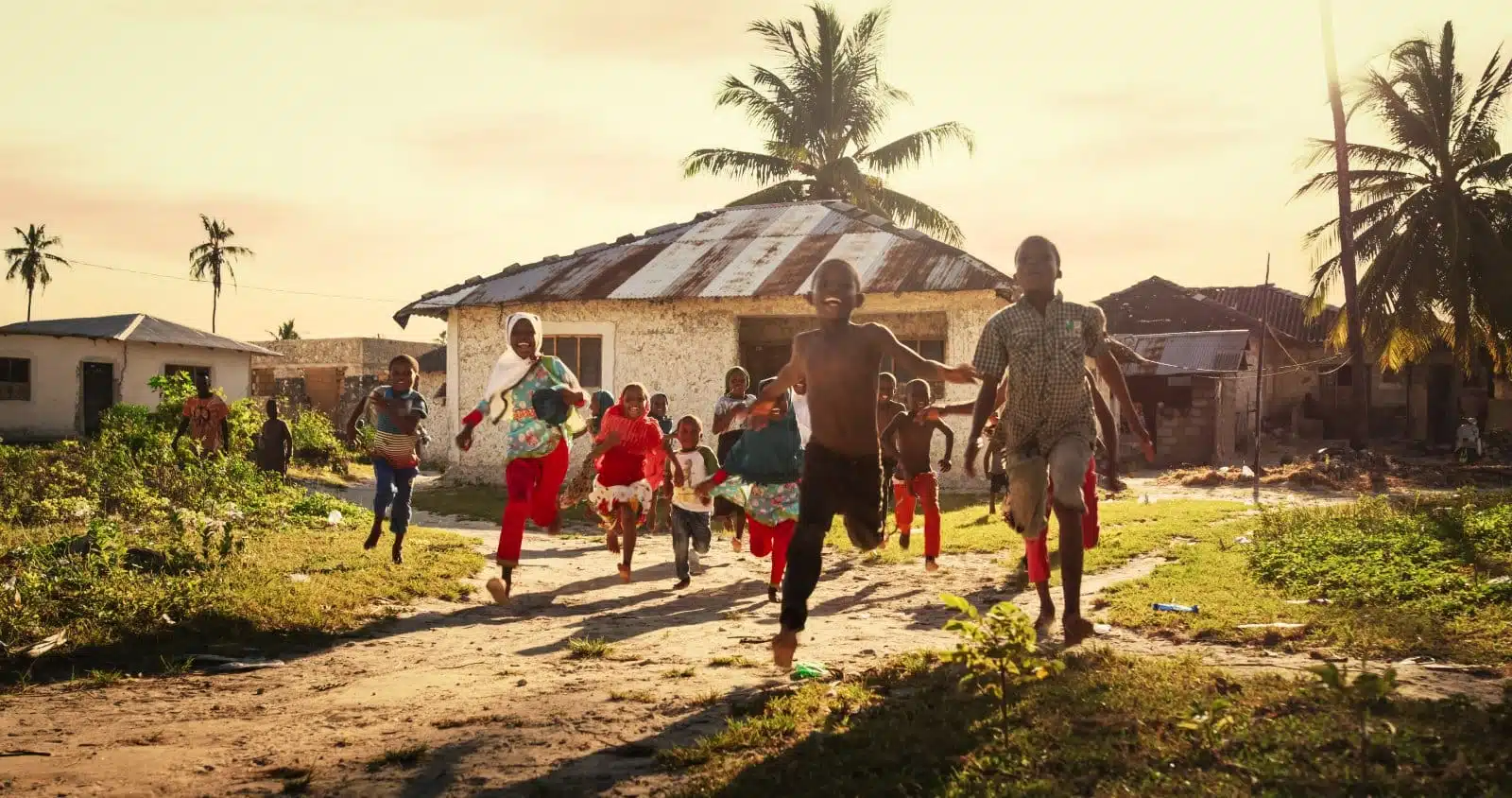
Image Credit: Shutterstock / Kitreel
Kevin Richardson’s commitment to wildlife conservation parallels his dedication to education and public outreach. Leveraging his extensive knowledge and unique experiences with Africa’s predators, Richardson has become a prominent figure in wildlife education, utilizing various platforms to engage and inform a global audience.
Through documentaries, social media, and public speaking engagements, he provides a window into the complex world of predator conservation, highlighting both the beauty of these animals and the challenges they face. Richardson’s educational initiatives are designed to inspire action, fostering a deeper appreciation for wildlife and understanding of conservation efforts’ importance.
By demystifying the behaviors and needs of predators, Richardson encourages a more empathetic and informed approach to wildlife conservation, empowering individuals to contribute to preserving these species. His work underscores the belief that education is a critical tool in the fight against extinction, capable of transforming public perception and driving meaningful change.
The Role of Media in Conservation
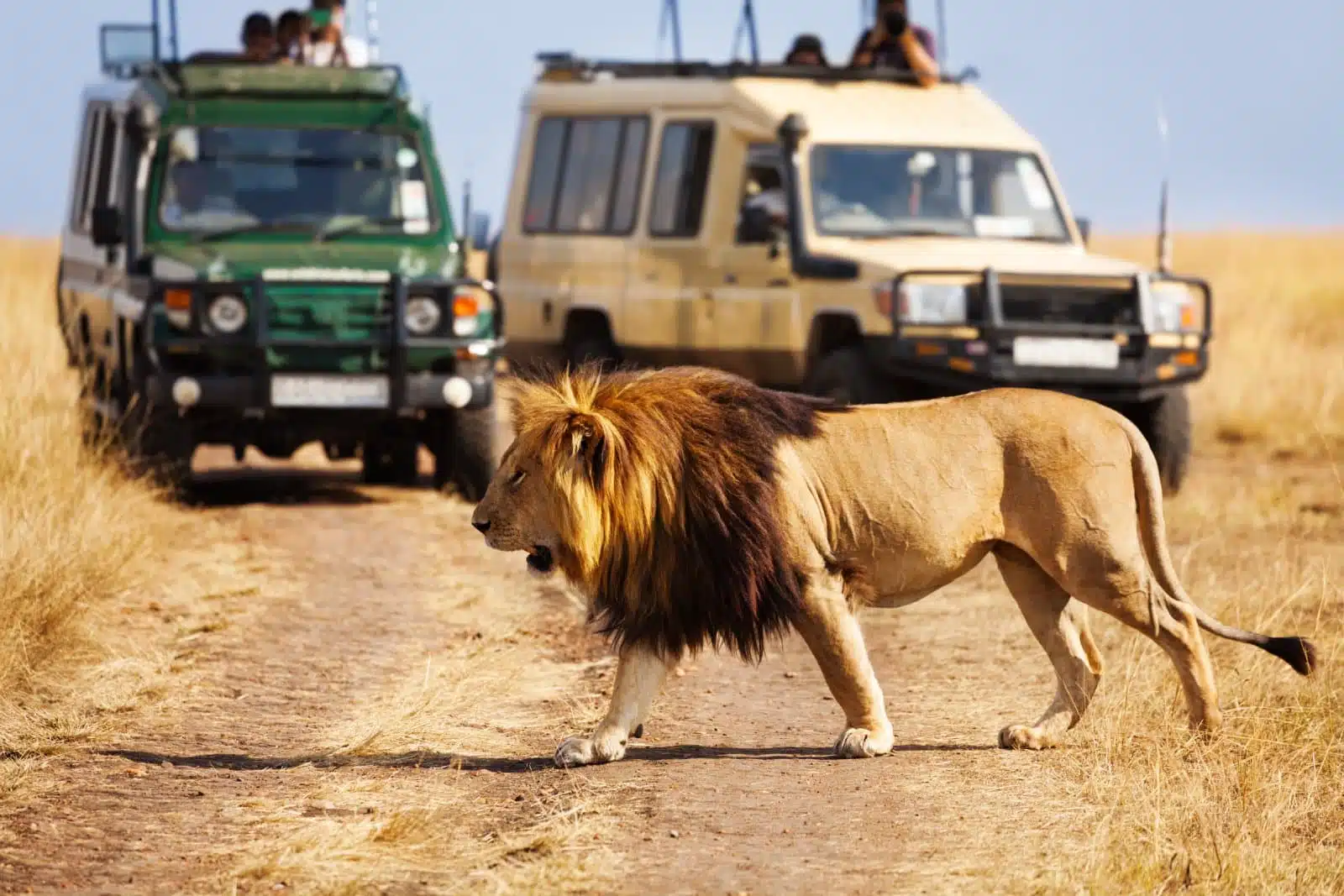
Image Credit: Shutterstock / Sergey Novikov
Media plays a pivotal role in shaping public opinion and mobilizing support for conservation efforts. Kevin Richardson has masterfully harnessed the power of media to amplify his conservation message, reaching an audience of millions across the globe. Through captivating documentaries and viral social media content, Richardson brings the plight of Africa’s predators into the public eye, fostering a sense of connection and concern among viewers.
His collaborations with filmmakers and broadcasters have produced compelling narratives that underscore the urgency of conservation efforts while showcasing the beauty and complexity of Africa’s ecosystems. This strategic use of media generates awareness and drives fundraising initiatives critical to the sustainability of the sanctuary and its projects. Richardson’s adept use of media as a conservation tool exemplifies how storytelling and visual imagery can inspire a global movement toward environmental stewardship and wildlife preservation.
Research and Behavioral Studies
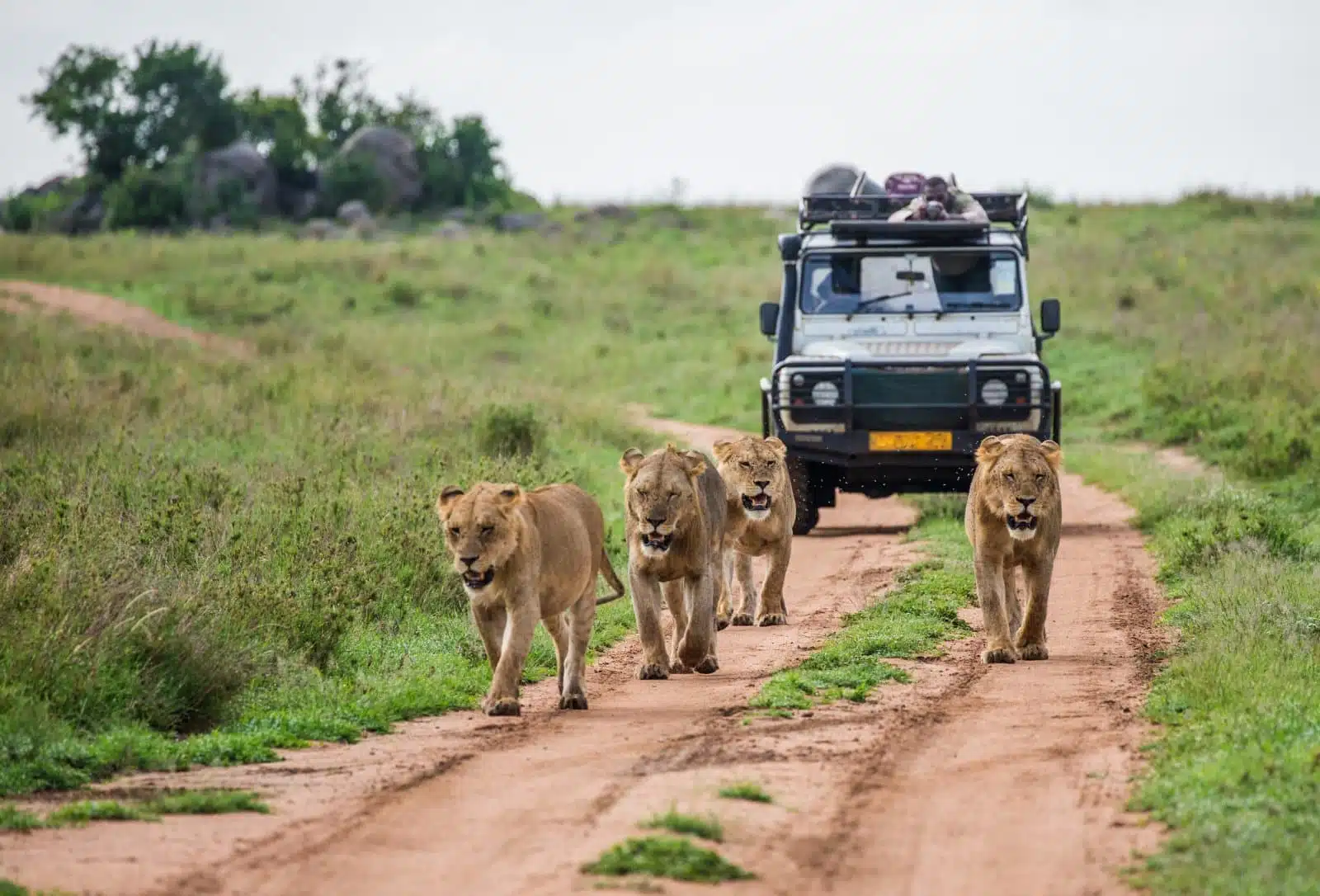
Image Credit: Shutterstock / GUDKOV ANDREY
The Kevin Richardson Wildlife Sanctuary is a crucial hub for research and behavioral studies, offering insights into the lives of predators seldom observed in the wild. Richardson’s unique relationship with the sanctuary’s animals allows for close observation and detailed study of their behaviors, social dynamics, and individual personalities. This research contributes significantly to the scientific community’s understanding of predator ecology, informing conservation strategies and management practices.
Studies conducted at the sanctuary cover various topics, from social hierarchy and communication to reproduction and hunting techniques. By publishing his findings and collaborating with academic institutions, Richardson ensures that the knowledge gained from his work benefits the inhabitants of his sanctuary and wild populations facing similar challenges. This commitment to research and education highlights the sanctuary’s role as a leader in the field of conservation science, bridging the gap between academic study and practical conservation efforts.
Volunteer Programs
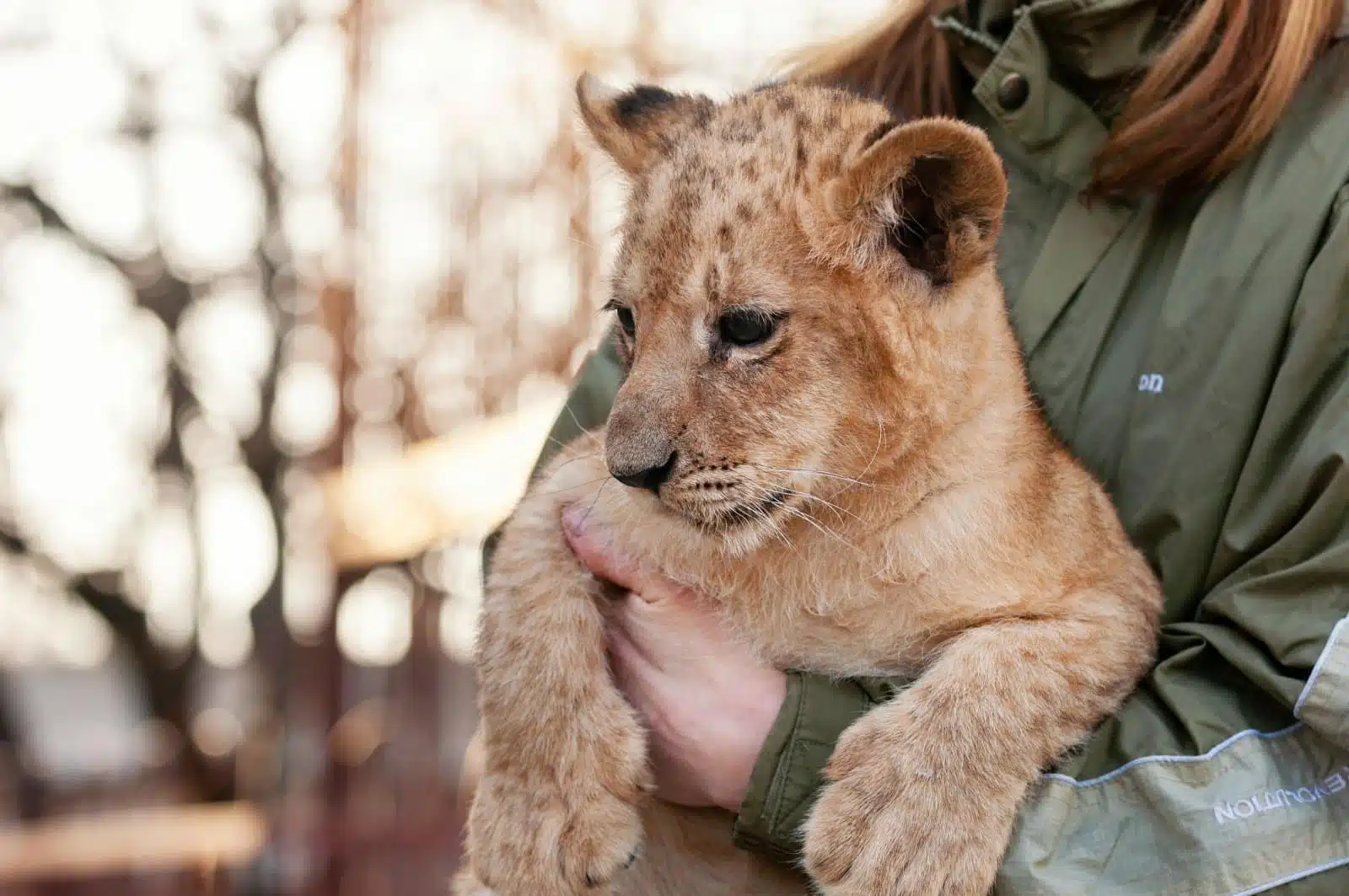
Image Credit: Shutterstock / WildlifeWorld
The volunteer programs at the Kevin Richardson Wildlife Sanctuary offer a unique, hands-on experience in wildlife conservation. These programs immerse participants in the day-to-day operations of the sanctuary, providing an unparalleled insight into the care, management, and conservation of large carnivores. Volunteers are allowed to work closely with the sanctuary staff, assisting with tasks ranging from food preparation and feeding to enclosure maintenance and behavioral observations.
Beyond the practical skills gained, volunteers are also educated on the broader conservation issues facing Africa’s predators and the ecosystems they inhabit. This immersive experience fosters a deep connection to the animals and a profound understanding of the importance of conservation efforts. The volunteer program at the sanctuary not only contributes to the vital work but also inspires participants to become advocates for wildlife conservation in their own communities. The Kevin Richardson Wildlife Sanctuary is building a global network of informed and passionate conservationists by opening its doors to volunteers worldwide.
Public Awareness Campaigns

Image Credit: Shutterstock / godongphoto
Kevin Richardson has been a formidable force in public awareness campaigns, leveraging his platform and influence to highlight critical conservation issues. His campaigns educate the public on the threats facing Africa’s predators, including habitat destruction, human-wildlife conflict, and illegal wildlife trade. Richardson’s ability to articulate the complex interplay between humans and wildlife, coupled with his compelling storytelling, has mobilized public opinion and galvanized support for conservation initiatives.
Through petitions, social media campaigns, and public demonstrations, he has successfully advocated for policy changes and increased protection for vulnerable species. One of Richardson’s most notable campaigns is against canned hunting, a practice that poses a significant threat to lions in South Africa. His relentless advocacy has raised international awareness of this issue, leading to increased scrutiny and calls for legislative reform. Through these public awareness campaigns, Richardson demonstrates the power of informed activism in driving change and securing a future for Africa’s majestic predators.
Collaborations with Conservation Organizations

Image Credit: Shutterstock / Kostiantyn Voitenko
Understanding the multifaceted nature of wildlife conservation, Kevin Richardson actively seeks out collaborations with other conservation organizations. These partnerships are crucial for amplifying the impact of his work, pooling resources, and sharing knowledge to tackle conservation challenges more effectively. Richardson’s collaborations span various initiatives, from anti-poaching operations and habitat restoration projects to educational programs and wildlife research.
By joining forces with organizations that share his vision, Richardson can extend the reach of his conservation efforts, benefiting the inhabitants of his sanctuary and wildlife populations across Africa. These collaborations also provide a platform for Richardson to advocate for policy changes at both national and international levels, furthering the cause of wildlife conservation. Through strategic partnerships, Richardson and his allies are forging a united front against the threats facing Africa’s predators, showcasing the power of collaboration in the fight to preserve the continent’s natural heritage.
Sustainable Tourism
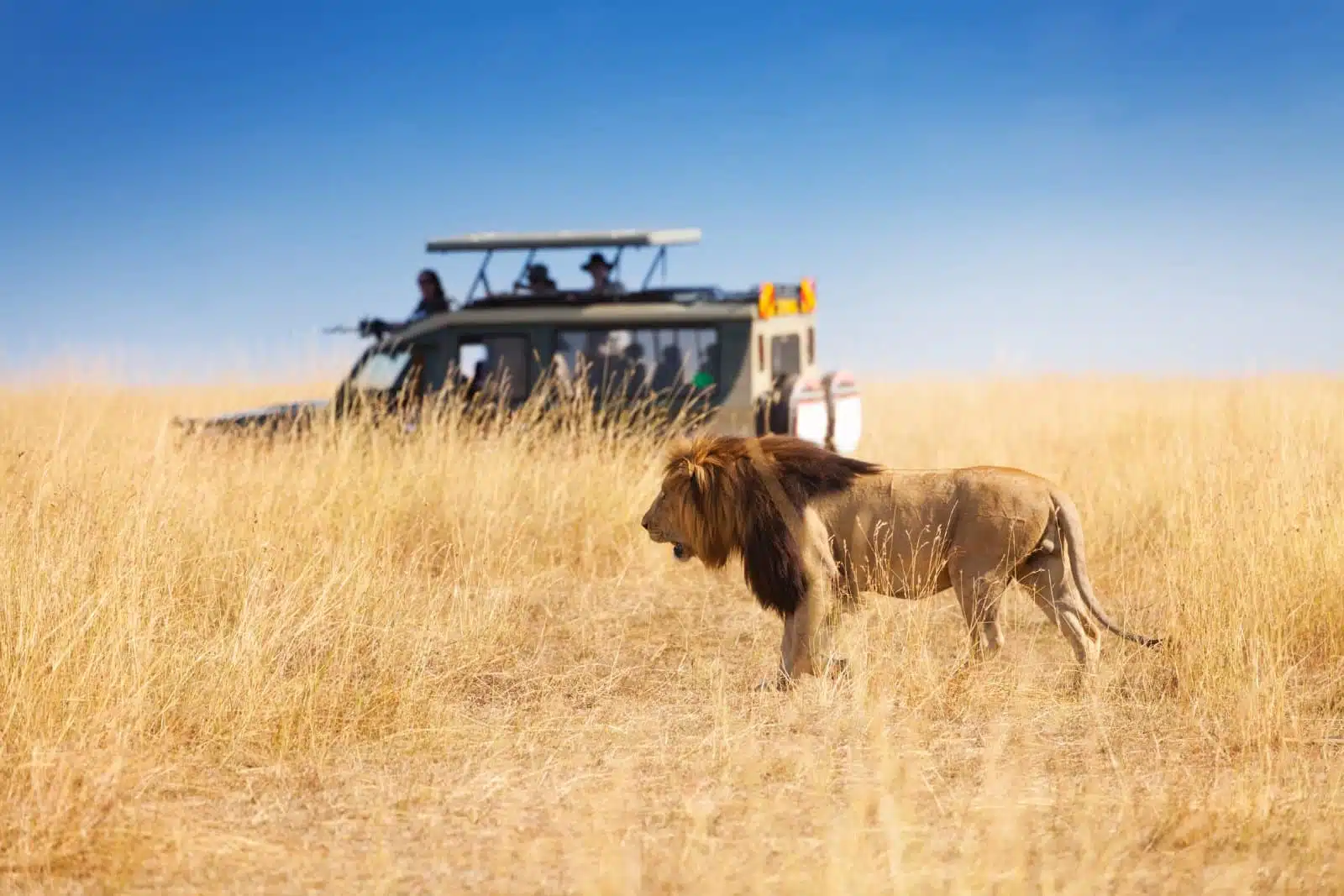
Image Credit: Shutterstock / Sergey Noviko
The Kevin Richardson Wildlife Sanctuary recognizes sustainable tourism’s potential as a conservation and education tool. By offering ethical and responsible wildlife experiences, the sanctuary educates visitors about Africa’s predators’ challenges and the importance of conservation efforts. These tourism initiatives minimize the impact on the animals while maximizing educational value for visitors. Tours and experiences at the sanctuary provide an intimate glimpse into the lives of the animals, fostering a deeper appreciation and understanding of wildlife. The revenue generated from these tourism activities is a vital source of funding for the sanctuary, supporting its conservation projects, research initiatives, and educational programs.
Richardson’s approach to sustainable tourism serves as a model for how wildlife attractions can contribute to conservation goals while offering meaningful experiences to visitors. Through its tourism initiatives, the Kevin Richardson Wildlife Sanctuary is redefining the relationship between conservation and tourism, proving that the two can coexist harmoniously for the benefit of wildlife and people alike.
Future Directions in Conservation
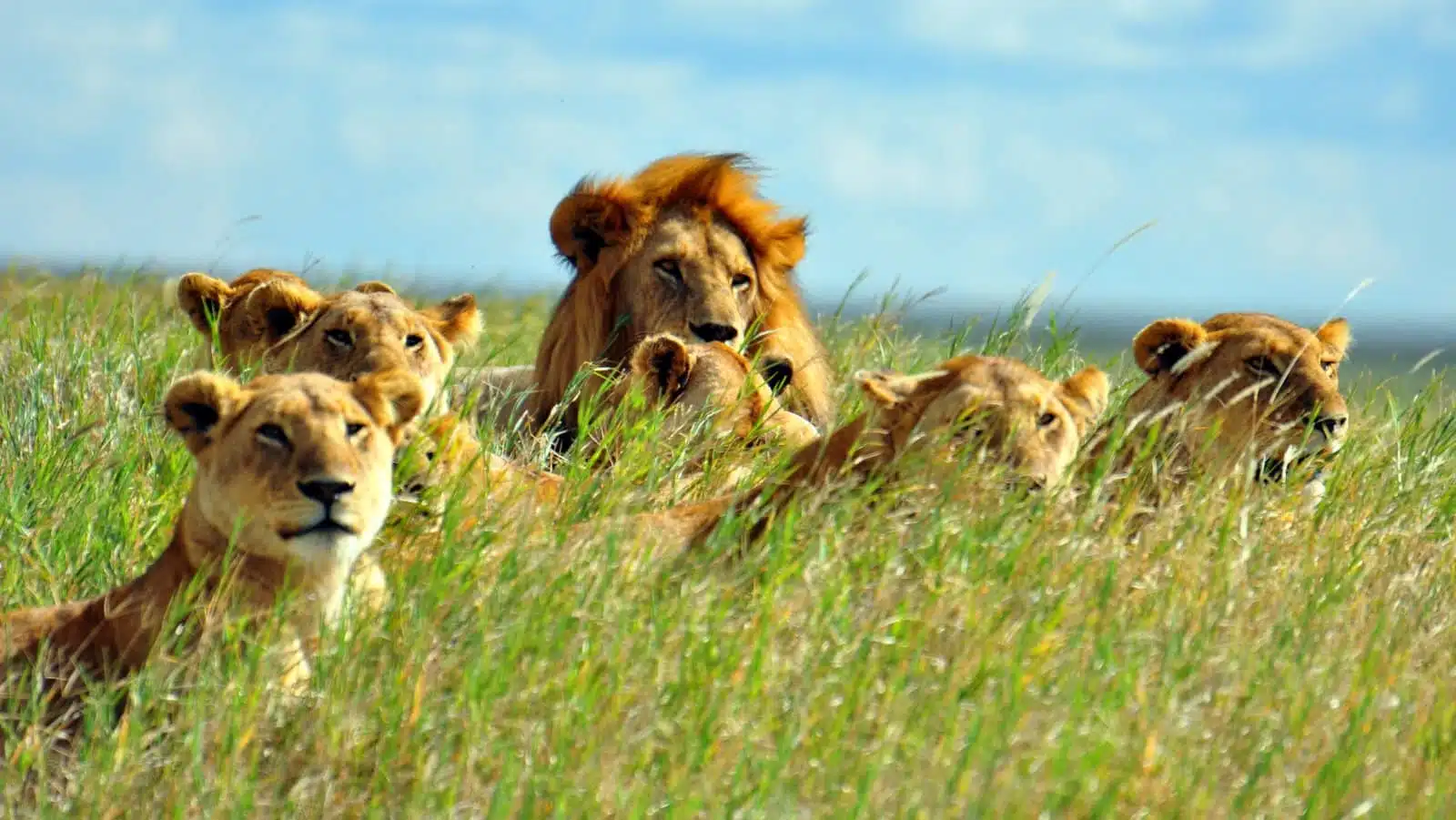
Image Credit: Shutterstock / EastVillage Images
Looking to the future, Kevin Richardson is committed to exploring and implementing innovative conservation strategies to address the evolving challenges facing Africa’s wildlife. Recognizing the importance of habitat restoration, Richardson is involved in projects aimed at rehabilitating and expanding natural habitats to ensure the long-term survival of predator populations.
Additionally, he is focused on strengthening community-based conservation initiatives, understanding that the support and involvement of local communities are crucial for sustainable conservation outcomes. Richardson is also at the forefront of leveraging technology for conservation, from using drones for anti-poaching surveillance to developing apps that promote wildlife education.
As he looks ahead, Richardson’s work continues to be guided by a vision of a world where humans and wildlife coexist in mutual respect and harmony. His dedication to innovation, collaboration, and education ensures that the Kevin Richardson Wildlife Sanctuary remains a leader in conservation, inspiring others to join the fight to protect Africa’s irreplaceable wildlife heritage.
The Bottom Line
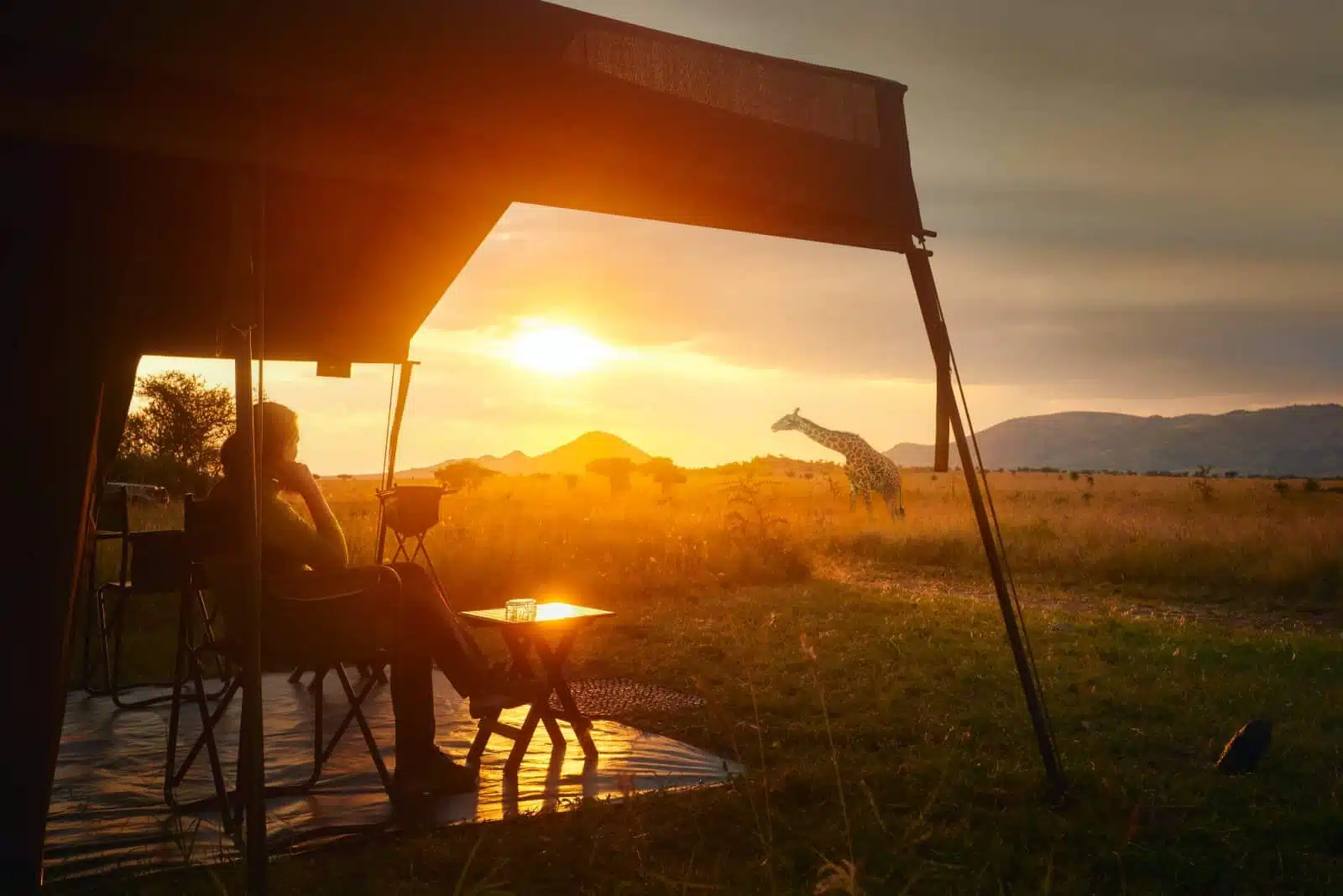
Image Credit: Shutterstock / soft_light
Kevin Richardson’s multifaceted approach to wildlife conservation has set a new standard in the field, blending hands-on animal care with groundbreaking research, public education, and advocacy. Through his sanctuary, public awareness campaigns, and collaborations with conservation organizations, Richardson is safeguarding the future of Africa’s predators and inspiring a global movement toward a more sustainable and compassionate relationship with the natural world.
As we reflect on Richardson’s contributions to wildlife conservation, we are reminded of the power of individual action to effect meaningful change. In the spirit of Richardson’s work, we are all called to play a part in preserving our planet’s precious wildlife for generations to come.
More From The Green Voyage
Top 10 Trending Travel Destinations 2024
6 Essential Banking Apps for International Travel – Managing Your Finances on the Go
Traveling With Kids – 10 Tips to Create Memorable Family Holidays
The post In the Spotlight – Kevin Richardson, The Lion Whisperer first appeared on The Green Voyage.
Featured Image Credit: Shutterstock / Darryl Botha.
For transparency, this content was partly developed with AI assistance and carefully curated by an experienced editor to be informative and ensure accuracy.
Tips for Trip Success
Book Your Flight
Find an inexpensive flight by using Kayak, a favorite of ours because it regularly returns less expensive flight options from a variety of airlines.
Book Your Hotel or Special Accommodation
We are big fans of Booking.com. We like their review system and photos. If we want to see more reviews and additional booking options, we go to Expedia.
You Need Travel Insurance!
Good travel insurance means having total peace of mind. Travel insurance protects you when your medical insurance often will not and better than what you get from your credit card. It will provide comprehensive coverage should you need medical treatment or return to the United States, compensation for trip interruption, baggage loss, and other situations.Find the Perfect Insurance Plan for Your Trip
